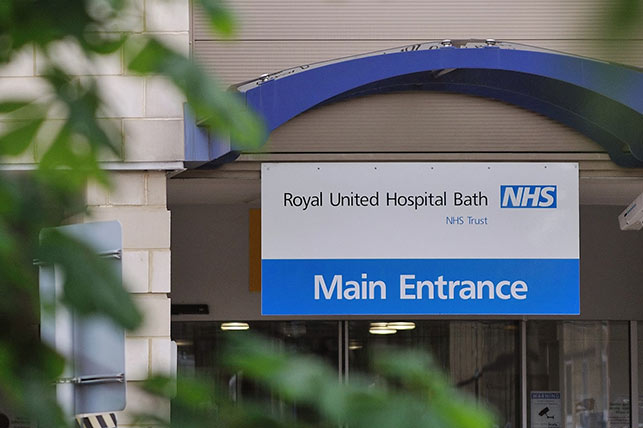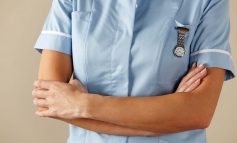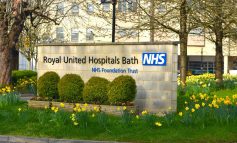Public Health England is reminding anyone experiencing symptoms of Norovirus to stay at home and not visit hospitals, care homes or their GP surgery.

The reminder comes after figures were published revealing that at the Royal United Hospital in Bath, 333 beds were out of use for patients last week due to the virus, an increase of 296 beds from the week before.
The average number of beds out of action due to Norovirus in hospitals across the country last week was 29.
The Norovirus infection is the most common cause of vomiting and diarrhoea in the UK, affecting around 3million people every year.
The symptoms of norovirus are very distinctive – people often report a sudden onset of nausea followed by projectile vomiting and watery diarrhoea, some people also experience headaches, mild temperature and stomach cramps.
There is no treatment for the virus but it is important to keep hydrated to combat the loss of fluids. Most people will recover within a few days and there are no long-term effects.
The illness is highly infectious and great care needs to be taken to prevent its spread. When introduced to hospitals, residential care homes and other establishments where people live or work together in close proximity it can have major consequences such as the closure of hospital wards to new admissions, NHS staff going off work sick and patient appointments being postponed.
Dr Toyin Ejidokun, Consultant in Communicable Disease Control for the Avon, Gloucestershire and Wiltshire Public Health England Centre said: “Outbreaks of norovirus infection are common as winter approaches.
“However, the impact on individuals and care settings, such as hospitals and residential care homes, can be limited to some extent, by taking some simple actions.
“In hospitals, it is necessary to isolate individual cases and partial closures of wards can be used as measures taken to contain the infection and stop it spreading.
“There are also things that people can do to protect themselves and others from catching norovirus infection.”
Dr Elizabeth Mearns, Medical Director for the Bath, Gloucestershire, Swindon and Wiltshire NHS England Area Team said: “Norovirus is highly infectious and can be very unpleasant if you catch it, causing vomiting and diarrhoea.
“Simple things like washing your hands properly, being very careful with the handling of food and avoiding contact with other people who show symptoms will all help avoid getting infected.
“Although most people will usually get better in a day or so, people who are physically frail can be affected far more severely.
“If you do think you have had Norovirus, don’t visit someone in hospital for at least 48 hours after your symptoms have finished. Otherwise, you could be putting ill people at real risk.”
The advice for people with symptoms is:
- Stay away from work, school or college until you have been free of symptoms for at least 48 hours;
- Do not handle or prepare food for other people until you have been symptom free for a minimum period of 48 hours;
- Do not visit friends or relatives in hospitals or residential care homes to avoid introducing the infection to environments where it could spread easily and put vulnerable people at greater risk;
- Do not attend social gatherings until you have been free of all symptoms for at least 48 hours;
- Do not visit your GP surgery or local A&E Unit. You will recover naturally without treatment, but it is important to rest and take plenty of drinks to replace lost fluids;
- Wash your hands thoroughly and regularly at all times, but particularly after toilet visits and before eating;
- Do not share towels with others. If possible, use paper towels after hand-washing and dispose of them immediately;
- Make sure that any surface that is contaminated by vomit or faeces is promptly and thoroughly disinfected after an episode of illness;
- If your symptoms persist or appear to be worsening, phone your family doctor or NHS 111 for advice;
- If you have bloody diarrhoea (blood in your stools), phone your doctor or NHS 111 urgently for advice.
RUH data provided by the BBC



